Brewery With A Cause
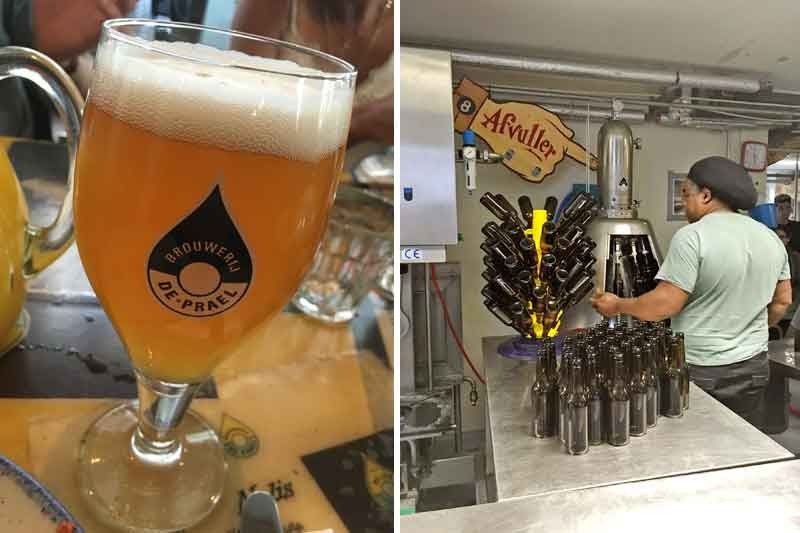
MANILA, Philippines — At the edge of Amsterdam’s famed red-light district, a five-minute walk from its iconic Central Station, lies a brewery like no other.
A hidden gem in the city known for many things, Brouwerij de Prael is right smack in the center of what Amsterdam is all about: an intricate system of canals, narrow houses, artistic and cultural heritage and – to some extent – a tolerance for vices often unheard of in other places. In de Prael, every bottle of beer has a story, says its marketing manager Thomas Gesink.
He says the social enterprise – which combines a brewery, pub, restaurant and a shop – is founded on a vision of providing customers with an experience beyond just having a taste of hand-crafted Dutch beer. Founded over a decade ago, Brouwerij de Prael merges what its co-founders Fer Kok and Arno Kooy are passionate about: brewing beer and helping people with mental illnesses.
At the outset, the two seem an unlikely mix. But the success of the company shows how passion can drive social change even in the least likely places.

Marketing manager Thomas Gesink says de Prael merges what its founders are passionate about: brewing beer and helping people with mental illnesses.
“De Prael is about so much more than just beer,” Kooy says on the company’s website. “One person might work seven days, another seven minutes, but everyone is part of a big family. Working with people and with beer has turned out to be a brilliant combination.”
From a single branch in Amsterdam employing only around 20 people, de Prael has since expanded into several locations, including one in The Hague.
Their products are also being served in other pubs and sold in major stores, competing with bigger Dutch beer brands, including some that have become a staple in many parts of the world.
Gesink says the company now employs over 200 people battling various types of mental illnesses, many of whom have faced obstacles in finding a stable job.
“The way we try to make impact is by brewing and selling beer,” he says. “With every 2,000 liters that we make, we can provide for one person for one whole year.”
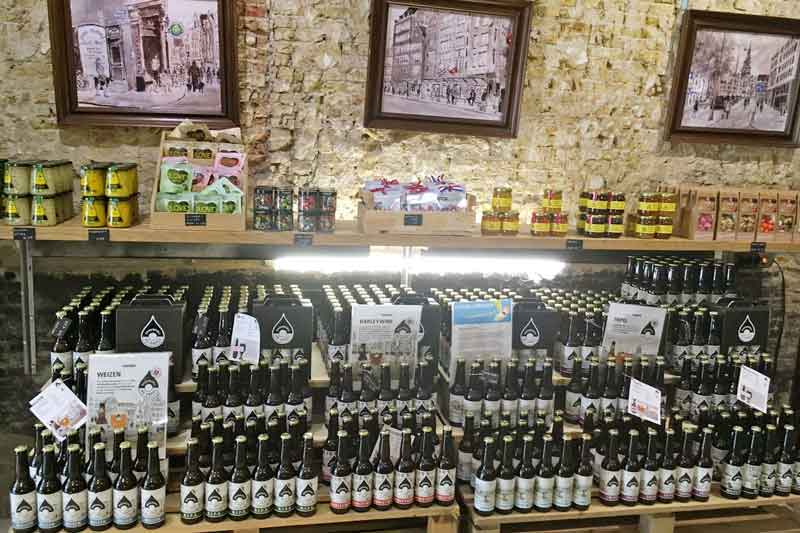
Different types of beer are produced at the on-site brewery and may be purchased at the shop next door. De Prael’s beers are also available in supermarkets and other bars.
And with over 450,000 liters of beer sold every year, the impact is nothing short of significant.
Operating a social enterprise poses its own challenges. For instance, in the case of de Prael, the management has to ensure that customers receive the quality of service that they expect.
“We work with people who are very inconsistent,” says Gesink, noting instances when employees would not come to work due to the problems that they face. “We should be able to make sure that we can fall back on something, a safety net.”
He also admits less efficiency in terms of production, noting that they prefer manual operations to involve more people in the process.
Bottling beer, for example, is done manually rather than by machine, as most breweries are doing.
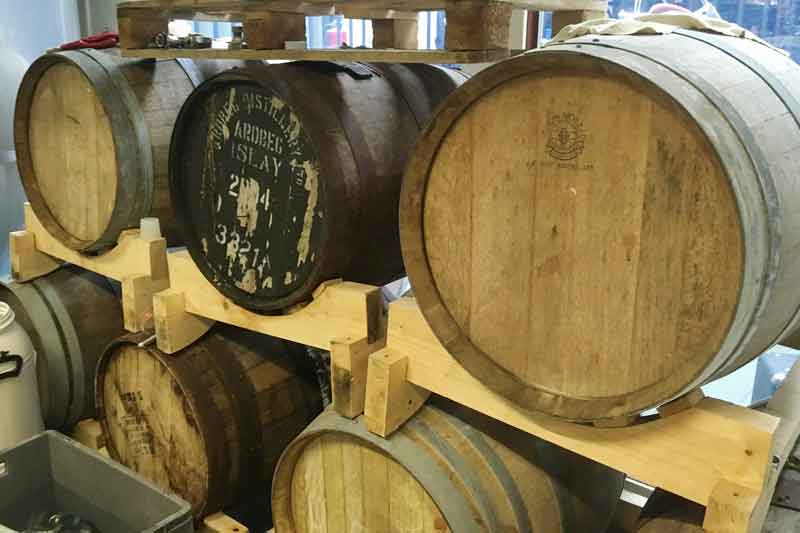
“We tend to involve more people than we should, but that kind of involves more people in the process of the whole brewing. Everyone has a contribution to every bottle or every glass that’s made,” he says. “That’s something that they can be proud of.”
De Prael also receives support from the government and other groups, representing a small fraction of the overall revenue of the company.
More recently, de Prael has embarked on another cause: environmental protection.
“One of our newest (products) is a blond beer which we made out of rainwater. We came up with this idea because of climate change that has been going on,” says Gesink.
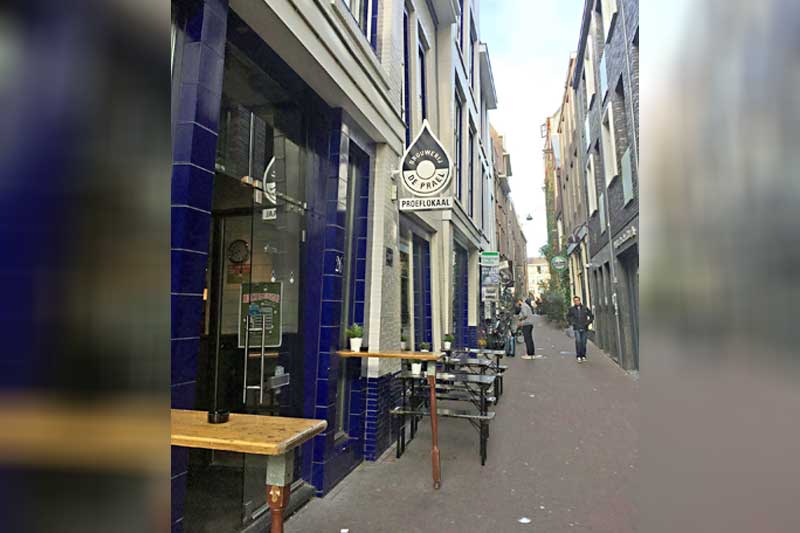
From a single branch in Amsterdam over a decade ago, de Prael has since expanded into several locations, including one in The Hague. This branch is located at the edge of Amsterdam’s red light district.
“As a social enterprise, we thought about how we can use rainwater in a different way and actually came up with the idea,” he adds.
Since last year, the company has been collecting rainwater, which it uses for brewing what it calls Code Blond – a play with the system used to describe the amount of rainfall (i.e. Code Yellow, Code Orange, Code Red).
“Excessive rainfall is a very big issue,” says Gesink. “The sewage system in Amsterdam is quite old, just as old as the canals. It’s not really suited for the amount of rainfall that comes in every year.”
He says the beer, with its bitter-citrusy taste, has a “clearer” taste than those made from tap water.
And while the “free” water does not reduce the costs due to the need for filtration, Gesink says it has driven interest to what they are doing.
“That exploded after we launched it. It helped us tell our story.”
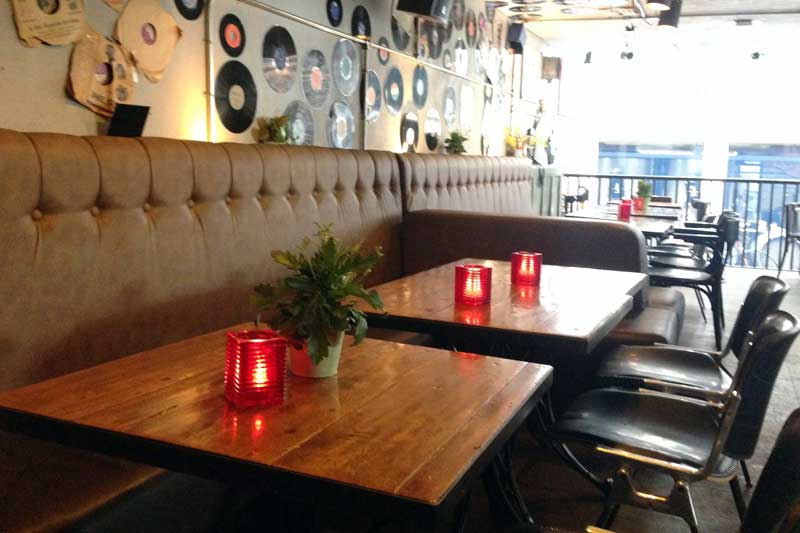
Social enterprise Brouwerij de Prael offers a unique experience to customers, combining a brewery, pub, restaurant and shop all in one.
- Latest
- Trending



















